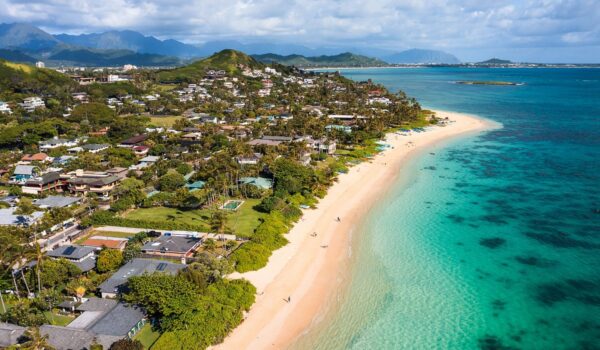Learning how to immigrate to Costa Rica begins with knowing the country's entry requirements, residency options, and legal processes. This stable Central American country is known for its welcoming culture and offers breathtaking natural beauty. Costa Rica provides several pathways to immigration, including residency for retirees, investors, and remote workers.
Knowing which category fits your situation is essential for a smooth transition. The process can be quite direct with proper planning and documentation. Hiring a local immigration attorney or finding a consultation could help stay informed and avoid unnecessary delays. If you do it properly, getting a fresh start in Costa Rica can be peaceful and rewarding.
Costa Rica Entry Requirements
Costa Rica now allows visa exemptions to citizens of 97 countries. If you are a citizen of one of these places, you only need your valid passport to enter the country. Typically, tourists from visa-exempt nations are allowed a maximum stay of 90 days. So, if you have a passport from one of these nations, you can start planning your Costa Rican journey.
According to Costa Rica's visa policy, tourists holding a valid multiple-entry visa or resident permit from the European Union, the United States, or Canada can easily enter the country. US visa holders with B and D visas are not required to seek an additional visa for Costa Rica.
Furthermore, Chinese travelers with a public affairs passport can enter Costa Rica without a visa. If your nationality is not excluded from visa requirements, then apply for a visa through the nearest Costa Rican embassy or consulate. The process includes acquiring the required paperwork and making an appointment.
Costa Rica Visa Eligibility
Foreign nationals who want to visit Costa Rica must fulfill specific visa eligibility criteria, which include:
Citizenship: Travelers must be citizens of an eligible nation and have a valid passport to prove their nationality.
Validity of Passport: The passport must be valid for at least six months after the date of admission into Costa Rica.
Duration of Stay: Visitors must not plan to remain in Costa Rica for longer than the time allowed by their visa or visa exemption.
Financial Capability: Visitors to Costa Rica should have enough money to cover their living and travel expenses.
No Plans to Work or Study: Because these activities require special visas or permits, visitors must not intend to work, study, or settle down in Costa Rica.
Visas Required for Immigration to Costa Rica
From retirement visas to work permits, knowing how to immigrate to Costa Rica can help you choose the best option for your situation. Let’s check the different options available:
1. Costa Rica Student Visa
Any foreign individual, regardless of country, who wishes to study in Costa Rica must apply for a Costa Rica student visa. Furthermore, you must have already been accepted into a Costa Rican school. Anyone wishing to remain in Costa Rica for more than ninety days must apply for a resident permit. The Costa Rican residency permits are classified according to the reason for your stay.
Student permits, which are part of the “Special Category” of immigration and work permits, are the kind of Costa Rican residency permit you require to study there. A student visa, which is classified as a “Special Category” of immigration, is the type of Costa Rican residency permit required for studying in Costa Rica.
2. Costa Rica Work Visa
Obtaining a Costa Rica Work Visa is not as simple as it could be in other nations. For starters, acquiring a work permit in Costa Rica is nearly impossible due to the government's strict rules that guarantee that foreigners do not take positions that Costa Ricans are eligible for.
The only people who can work in Costa Rica without prior authorization are Costa Rican nationals or holders of a Permanent Residency. However, that does not imply that Temporary Residence Permit holders cannot work in Costa Rica. Like a student permit, a Costa Rica work permit belongs to the “Special Category” of immigration permits. This signifies that its holder can work and stay in the nation under the terms established by the Ministry of Labour and Social Security.
3. Costa Rica Investment Visa
Investors who can contribute at least $150,000 to one of the following revenue sources are eligible to relocate to Costa Rica:
- Real Estate
- Costa Rican Stock Market
- Shares of the Costa Rican Corporation
4. Costa Rica Retirement Visa
To retire, you need to have a minimum of $1,000 monthly from a Costa Rica pension fund. This might be a private pension fund or one run by the Rican government. Bank statements or an official document are required as proof of the pension.
When foreigners can demonstrate that they are financially independent, they are granted a “Rentista” visa, which allows them to stay in Costa Rica for up to two years without having to work. To qualify for this visa, you must make at least $2,500 in monthly income. However, when you first apply for the visa, you must deposit $60,000 at a local bank and produce a letter of commitment confirming that you have the minimum amount needed each month.
Documents Required for Visa Application
The following documents are necessary for your Costa Rican visa; however, you may be asked to submit additional documents.
- Valid passport.
- Copy of your passport.
- An application letter stating that you are requesting a provisional visa.
- Passport photographs.
- Proof of financial means
- Proof of residency
- Proof of income
- A police clearance certificate.
- Proof of a clear criminal record.
How to Apply
The process of immigrating to Costa Rica involves several key steps, including obtaining a visa and registering with local authorities. You must apply for a Rican temporary residency permit and a visa to enter Costa Rica. Even if you are from a visa-free nation, you must visit a Costa Rican embassy or consulate in your home country to inform them that you wish to apply for a long-term resident permit. Here is how to apply for a Costa Rica visa:
1. Find a local Embassy/consulate: To enter Costa Rica, you must apply for a provisional or entry visa from your home country. To accomplish this, you must go to the Costa Rican embassy or consulate in your nation. The full list is here.
2. Fill out the application form: The application form is available here on the Immigration Department's website. You can get the form on the website of the relevant embassy or consulate in your area if online services are not accessible.
3. Collect the relevant documents: You might need additional documents depending on your nationality and reason for visit, but the general documents include a valid passport, proof of accommodation, etc.
4. Get your visa: Following the issuance of your visa, you have sixty days to enter the nation and apply for your residence permit. After that, you become a temporary resident in Costa Rica.
Costa Rica Visa Fees and Processing Time
The cost of a Costa Rica visa is $52. However, this does not cover the price of any service fees or the residence permit you will need to get once you're in the country. It's also worth noting that the costs may differ based on your country of residence.
A Costa Rican visa typically takes 30 calendar days to process. However, other visas, such as student visas, require a 90-day processing time, including the residence permit. Once every document is received, applications for tourist visas may take up to six business days to process.
Relocating as a US Citizen
If you are a US citizen and want to relocate to Costa Rica, you must use the Smart Traveler Enrollment Program to alert the US embassy there of your presence. Apart from this, you still need to apply for a residence visa at the Department of Immigration and have sufficient financial means to be eligible to stay in the country.
Benefits of Moving to Costa Rica
Learning how to immigrate to Costa Rica can benefit those seeking a new life or a fresh start in a tropical paradise. Here are some of the advantages:
1. The Weather
Leave your winter clothes at home when traveling to Costa Rica. The Central American country has mild weather all year, making it ideal for someone who appreciates spending as much time outside as possible. No wonder it's one of the happiest countries with beautiful and stunning beaches. Year-round activities in Costa Rica include surfing, swimming, hiking, and biking. Costa Rica's tropical climate also allows you to see and visit its most stunning attractions at any time of year.
2. Low Cost of Living
Once you've learned how to immigrate to Costa Rica, you can start enjoying the many benefits of life in this amazing country. Costa Rica's exceptionally low cost of living is one factor that makes it a popular destination for foreigners, including older citizens and students.
Living like a king in Costa Rica is easy since housing costs and consumer prices are far lower than in the United States. Most individuals in Costa Rica should be able to get by on merely $2,000 per month. Aside from the low living costs and beautiful beach towns, Rican citizens and the expat community make the country worth living in.
3 Average Life Expectancy
Costa Ricans tend to live long lives due to various factors, including the country's excellent healthcare facilities, extensive medical services, and public health programs. The government has an above-average life expectancy of roughly 80 years. Many people attribute the country's high life expectancy to its healthy diet of fresh veggies and sufficient Vitamin D-rich sunshine.
Conclusion
Understanding how to immigrate to Costa Rica involves research, preparation, and attention to legal details. You can start a new life in a beautiful, welcoming country by choosing the right residency path and meeting all requirements. Take each step seriously, and the move can be smooth and fulfilling.















